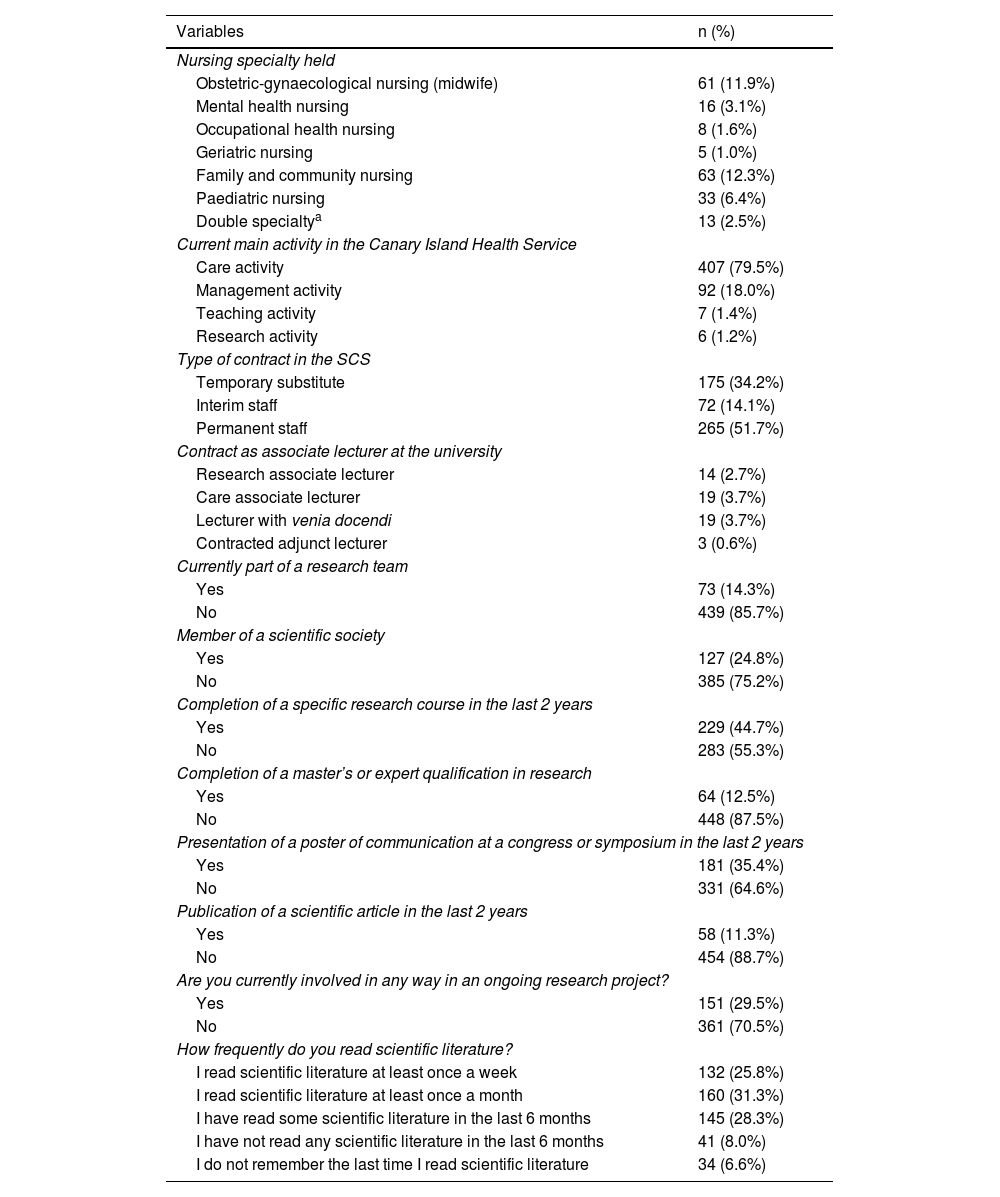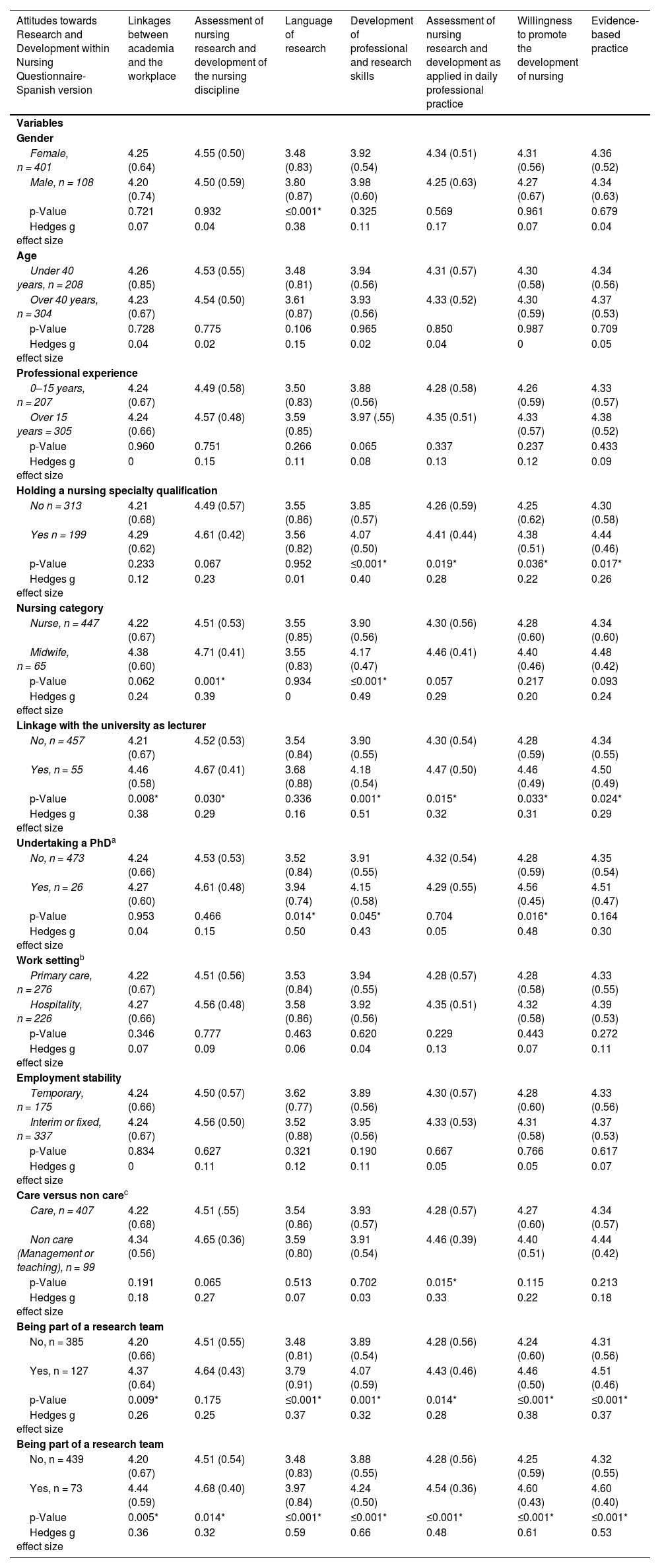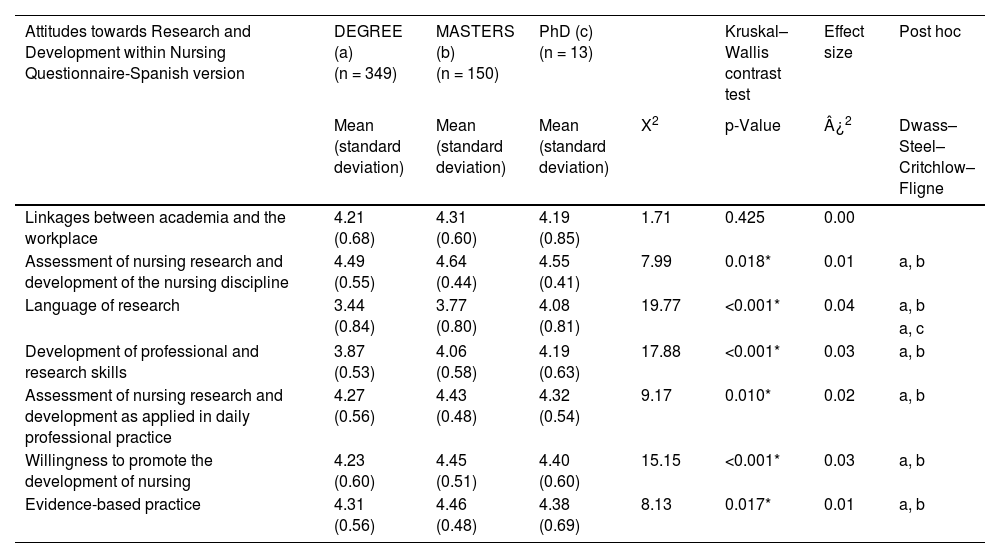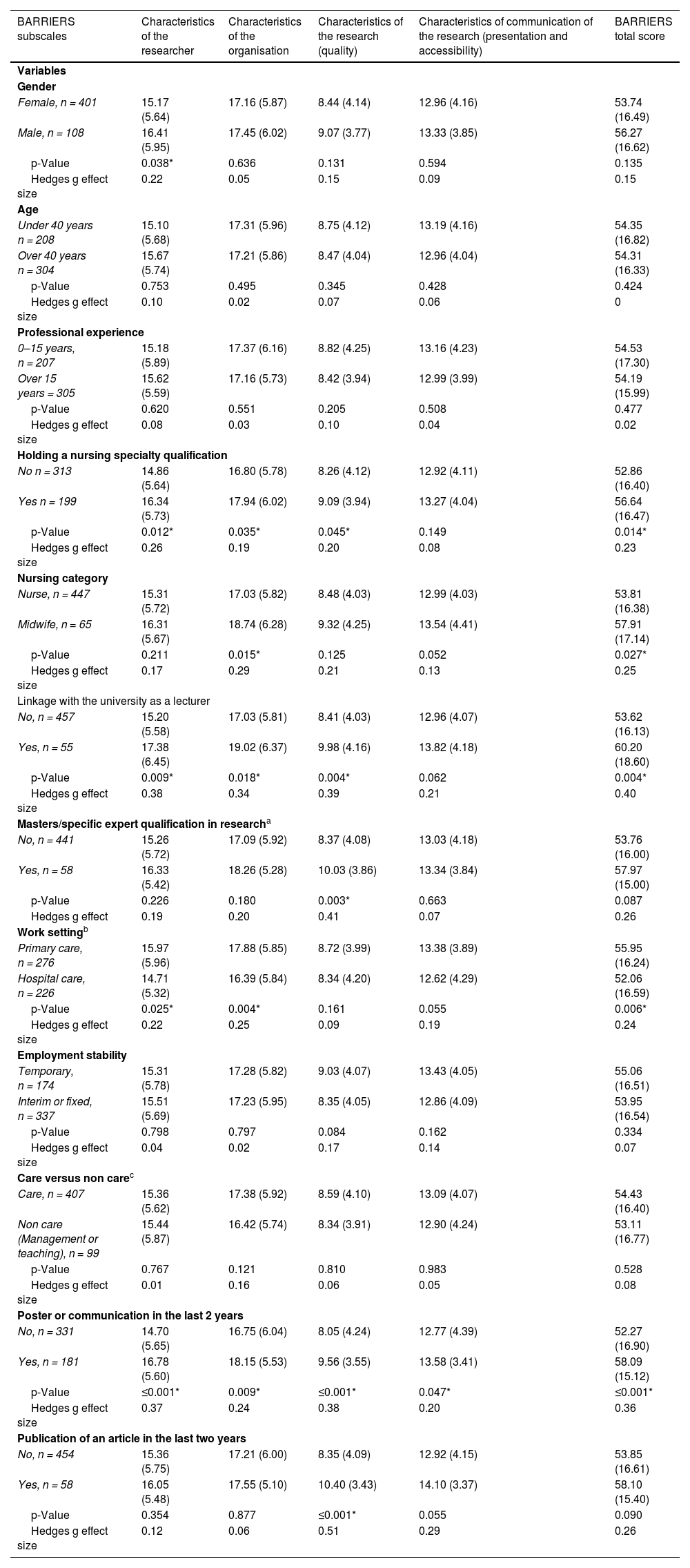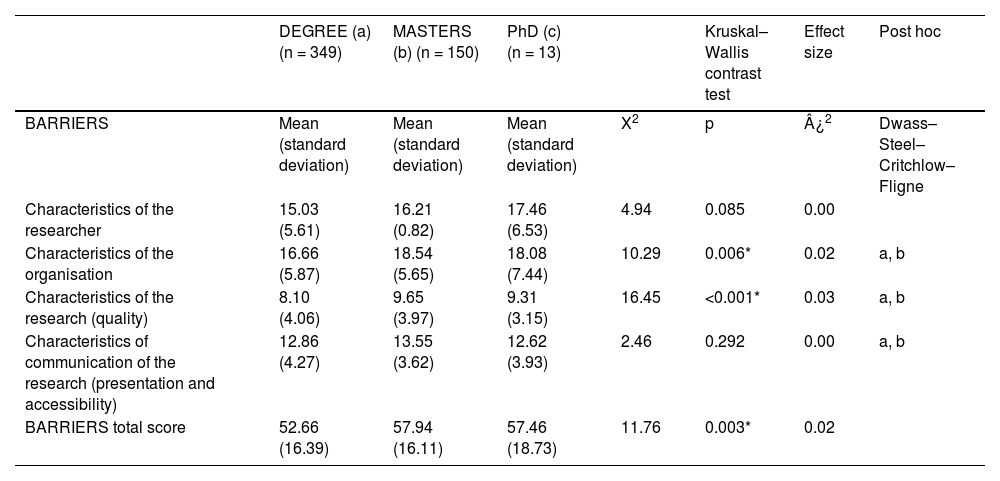To evaluate the attitudes, capacities and perceived barriers associated with research among nurses and midwives of the Canary Health Service (SCS).
MethodsDescriptive observational cross-sectional study with an analytical component carried out in the different SCS departments by means of an online survey in which sociodemographic and specific variables, the Spanish version of the Attitudes towards Research and Development within Nursing Questionnaire (ATRDNQ-e) instrument and the BARRIERS scale were collected. Authorisation was obtained from the two provincial ethics committees. A descriptive and inferential analysis (Mann–Whitney U test and Kruskal–Wallis test, post hoc contrast by Dwass–Steel–Critchlow–Fligne test) was performed with JAMOVI® v.2.3.24 software.
ResultsA total of 512 nurses and midwives with a mean age of 41.82 years participated in the study. Regarding the scores with the ATRDNQ-e instrument, the dimension with the lowest score was «Language of research» (mean = 3.55/SD = 0.84) and the highest «Assessment of nursing research and development of the nursing discipline» (mean = 4.54/SD = 0.52). The total mean score with the BARRIERS scale was 54.33 (SD = 16.52), with «Organizational characteristics» being the highest scoring subscale (mean = 17.25/SD = 5.90). The two highest perceived barriers were «Not enough time at work to implement new ideas» (mean = 2.55/SD = 1.11) and «Nursing does not have time to read research» (mean = 2.46/ SD = 1.11).
ConclusionsSCS nurses have a positive attitude towards research, although there are some barriers where improvement actions for nursing research should be implemented.
Evaluar las actitudes, capacidades y barreras percibidas asociadas a la investigación de las enfermeras y matronas del Servicio Canario de la Salud (SCS).
MétodoEstudio observacional descriptivo transversal con componente analítico realizado en las diferentes gerencias del SCS mediante encuesta online donde se recogieron variables sociodemográficas y específicas, la versión española del instrumento Attitudes towards Research and Development within Nursing Questionnaire (ATRDNQ-e) y la escala BARRIERS. Se obtuvo autorización de los dos comités de éticas provinciales. Se realizó un análisis descriptivo e inferencial (prueba de U de Mann-Whitney y prueba de contraste de Kruskal-Wallis, contraste post hoc mediante test de Dwass-Steel-Critchlow-Fligner) con el software JAMOVI® v.2.3.24.
ResultadosUn total de 512 enfermeras y matronas con una edad media de 41,82 años participaron en el estudio. Respecto a las puntuaciones con el instrumento ATRDNQ-e, la dimensión con la puntuación más baja fue «lenguaje de investigación» (media = 3,55/DE = 0,84) y la más alta «valoración de la investigación y el desarrollo enfermero en el contexto disciplinar» (media = 4,54/DE = 0,52). La puntuación media total con la escala BARRIERS fue de 54,33 (DE = 16,52), siendo «características de la organización» la subescala con mayor puntuación (media = 17,25/DE = 5,90). Las dos mayores barreras percibidas fueron «no hay tiempo suficiente en el trabajo para implementar nuevas ideas» (media = 2,55/DE = 1,11) y «la enfermería no tiene tiempo para leer la investigación» (media = 2,46/DE = 1,11).
ConclusionesLas enfermeras del SCS tienen una actitud positiva respecto a la investigación, si bien existen algunas barreras donde se deben implementar acciones de mejora para la investigación enfermera.






